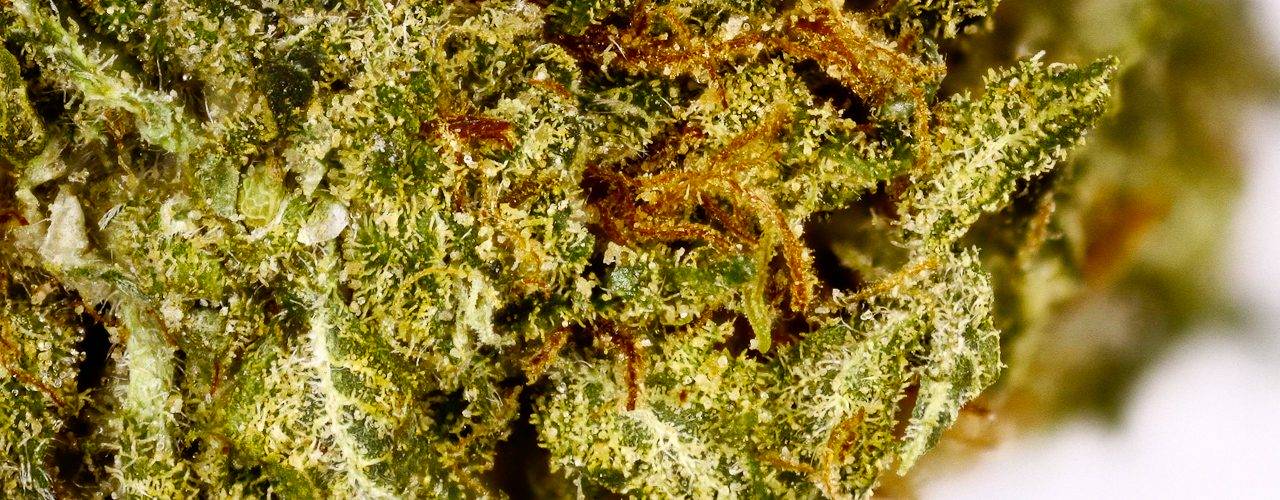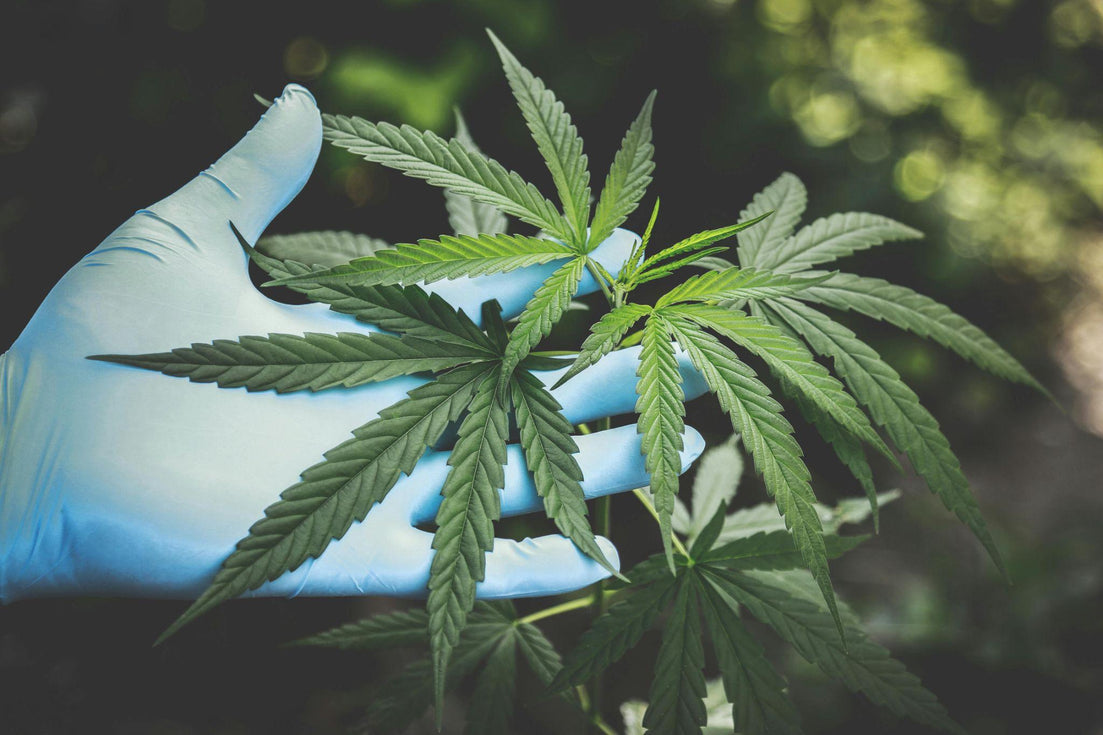Your cart is currently empty.

Have you ever wondered why stoners can eat so much when they have the munchies, but so few seem to gain any weight at all? How does this phenomenon possibly occur? New research suggests that cannabinoids may have a specific effect on metabolism and belly fat. In this article, we’ll walk you through these interesting scientific developments.
Metabolic Syndrome and Marijuana
Scientists at the University of Miami have reported that regular marijuana users were less likely to suffer from metabolic syndrome by 54%. Metabolic syndrome is a term that refers to a series of the following health problems happening at the same time:
- High blood sugar
- High blood pressure
- Abnormal cholesterol levels
- Excess body fat in waist and belly
These conditions occurring in conjunction can increase your risk of developing diabetes, stroke, and heart disease.

THIS AMAZING PICTURE BROUGHT TO YOU BY @EMILY_RUTH55
The study conducted by the University of Miami examined data from around 8500 people between the ages of 20 and 59 using the National Health and Nutrition Surveys. This study found that on average cannabis users had:
- Lower blood sugar levels
- Decreased risk of developing type 2 diabetes
- Decreased risk of heart disease
- Less abdominal fat
- Decreased levels of bad cholesterol
These findings ring true to other research involving marijuana’s effect on metabolism. Research conducted in 2013 and 2014 showed that those that smoked weed regularly had lower BMIs and up to 1 ½ inches smaller of a waistline.
The Endocannabinoid System and Metabolism
For a full understanding of the effect marijuana has on your metabolism, you need to understand the endocannabinoid system (ECS). The ECS is a network of cell receptors that are throughout the body and brain. These cell receptors are cannabinoid receptors, meaning that they react with the body’s naturally created endocannabinoids as well as the cannabinoids found in marijuana.
 THIS HELPFUL CHART ON THE ENDOCANNABINOID SYSTEM IS FROM @GRANDROOTSCBD
THIS HELPFUL CHART ON THE ENDOCANNABINOID SYSTEM IS FROM @GRANDROOTSCBD
The ECS connects basic parts of your brain that control hormone production, pleasure centers, emotion, and movement. The ECS is in charge of coordinating those messages so that the right parts of your body get the messages sent from the coordinating parts of the brain. The ECS is to thank for our experiencing pleasure during sex (not all creatures do), having an appetite, and experience different moods.
There is still more research to be done on the ECS and the role it plays in our body. However, some very interesting things have been discovered already. For example, when we feel hungry, an endocannabinoid known as anandamide is released in the system. When a person consumes marijuana, anandamide is replaced with THC, which specifically activates the CB1 cell receptor.
THC’s Effect on Belly Fat
Back in 2008, researchers in Italy targeted the CB1 receptor as being a cause for obesity. A few years later, more research conducted in Italy found that those with metabolic syndrome have a dysfunction in the ECS that causes their CB1 receptors to be overstimulated.

THIS GORGEOUS BUD COMES FROM @VIRIDIAFARMS
They theorized that the overactivation of the CB1 receptor by THC would make you store more fat. Without marijuana, too much anandamide binds to the same receptors and encourages you to binge eat and crave unhealthy foods. The excess energy gathered from this food turns into excess belly fat.
The ECS is what makes it so we feel pleasure when we eat. It also helps us to regulate the blood sugar levels in our body and it sends a signal to your brain to stop snacking. CBD, another cannabinoid found in cannabis, is thought to be the reason for the munchies not making people gain excess weight.
CBD as an Appetite Suppressant
THC and CBD actually contradict each other in a lot of ways. THC works to increase your appetite by binding to the CB1 cell receptors in the brain but at the same time, the CBD tells those cell receptors to cease and desist.

THIS APPETIZING-LOOKING PHOTO COMES FROM @SWEEEDWEEED
Research conducted at the School of Pharmacy of Berkshire’s University of Reading found how the following three cannabinoids affected appetite: cannabigerol (CBG), cannabinol (CBN), and cannabidiol (CBD).
They found that CBN caused subjects, in this case, rats, to eat more. CBG had no effect on the appetite, but CBD worked great to suppress appetite. The rats still ate, but they took in overall less food during the period of the test. And they aren’t the only ones to find this out about CBD.

WE'RE ENVIOUS OF THIS AMAZING BUD, PHOTOGRAPHED BY @BOMBERLAB
In 2012, scientists in Budapest found that CBD could also reduce the amount of fat build-up inside the arteries. This fat build-up occurs when you have high blood sugar. In 2011, another study found that CBD protected the insulin-producing cells from incurring damage in the pancreas. Yet another study from 2010 found that CBD could decrease the bodyweight of adult rats.
All of these studies have made CBD a topic of interest for those studying the treatment of diabetes, obesity, and other metabolic illnesses. The UK-based pharmaceutical company, GW Pharmaceuticals, for example, is currently developing a cannabis-derived drug for diabetes. This same company just developed Epidiolex, another cannabis-derived drug for the treatment of certain epileptic conditions and Sativex to treat muscle spasms in those with MS.

THIS AESTHETICALLY PLEASING PHOTO COMES FROM @HIGHBLISSMAGIC
When you eat, smoke, dab, vape, or any other manner of consuming weed, you are consuming some compounds that can kick your metabolism into high-gear and make you hungry (THC), while you’re consuming other cannabinoids that help to mitigate some metabolic dysregulation (CBD).
What About Tolerance?
Research has shown that repeated use of marijuana may dull the CB1 receptors over the course of time. It’s known amongst stoners that the more frequently you smoke, the more marijuana you need to smoke in order to experience the high. This is why “tolerance breaks” are popular within the stoner community. A tolerance break every now and again will allow you to save some money and will make you more susceptible to the psychoactivity of THC.
However, studies have shown that it could actually be that tolerance you’ve built up to THC that’s keeping you thinner and keeping your blood sugar in check.
The Right Strains for Metabolism
If you want to increase your food cravings, you’re going to want to find a strain that has a high amount of THC. However, if you’re hoping to maintain your weight or lose weight, go for a strain with higher CBD content than THC. Some, however, prefer something in the middle.

PHOTO BY @TYLERAMAYA
The following mild-strength strains are good for your metabolism:

THIS BEAUTIFUL PHOTO IS FROM @HIKING_HIGH710
There’s a lot that we already know and even more to uncover about marijuana’s various effects on our metabolism. What we do know is that the cannabinoids and the ECS play a major role in our digestive and metabolic health.



